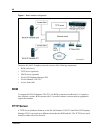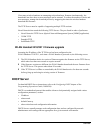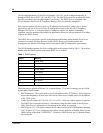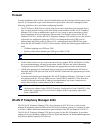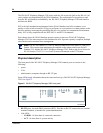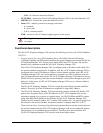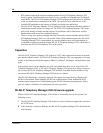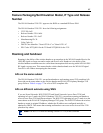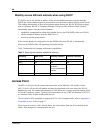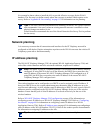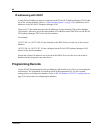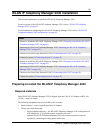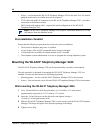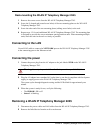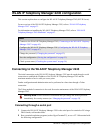
38
Overview
Mobility across different subnets when using DHCP
If a WSS is not in use, and the IP address of the wireless handset has been acquired through
DHCP, the wireless handset must be powered down and powered up when entering a new subnet.
This enables functionality of the wireless handset when entering the WLAN RF signal coverage
area of a different WLAN IP Telephony Manager 2245 group on a different subnet. Normal
functionality returns once the wireless handset:
• establishes communication within the Extended Service Set ID (ESSID) of the new WLAN
• obtains another IP address from the DHCP Server
• checks in with the group master
If the wireless handset is configured to use the ESSID of the new WLAN, it automatically
discovers the ESSID of the APs operating in broadcast mode.
Table 2 summarizes the roaming and handover capabilities.
Access Point
The 802.11b APs provide the connection between the wired Ethernet LAN and the wireless
(802.11) LAN. APs work in all markets and must be positioned in all areas where the WLAN
handsets are used. The number and placement of APs affects the coverage area and capacity of the
WLAN IP Telephony system. Typically, the requirements for use of WLAN Handsets 2210/2211
are similar to those of other wireless data devices.
The APs must be SVP-compliant to support QoS. For a list of supported APs, refer to Appendix A:
Compatible Access Points on page 77.
When a user on an active call is moving about, the call switches from one AP to another in the
subnet. This changeover is transparent to the user.
Table 2 Roaming and handover capabilities summary
IP address WSS in use Roaming capability Handover capability
Static No No No
Static Yes Yes Yes
DHCP No Yes, if the wireless
handset is
power-cycled between
subnets.
No
DHCP Yes Yes Yes



